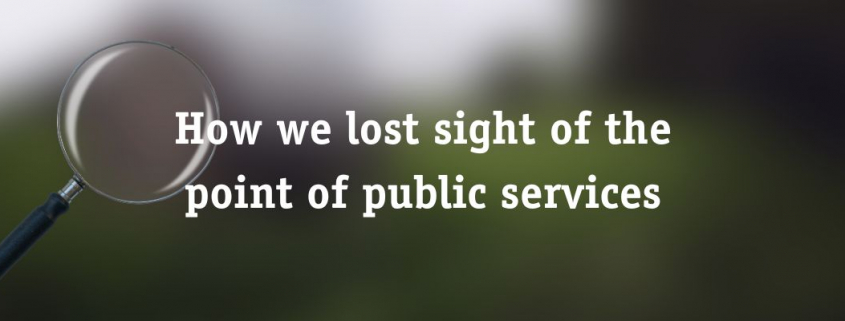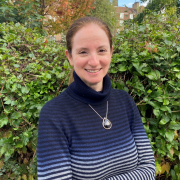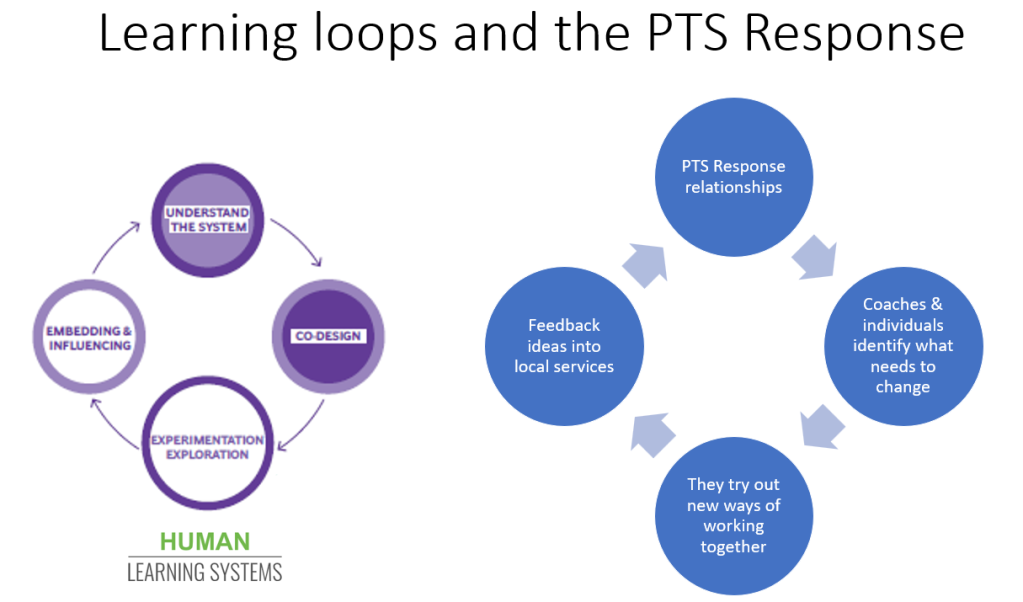Dannie Grufferty, PTS Coach and System Influencer in Haringey, explores the boundaries and challenges of the relationships she currently holds with people she works alongside and questions if there is a better way to support people through tough times.
I had a nice text this morning. Often a rarity when you work alongside public service systems, more often than not the homelessness system. A woman I work with has been offered housing. But why was she in touch, was it merely to share the good news?
I’m sitting here in the Wellcome Trust open access library; for once writing, after all those times in recent weeks I’ve told myself, “you must write more”.
It was a suggestion to come here as some kind of creative exercise, by someone I work with (not the woman who sent the text), we have been working with for nearly two years now, a woman who is going through a tough time and reached out after she was told about us by a Social Prescriber.
Getting out of the bustle of Haringey to the headier bustle of Euston feels almost like a day trip, particularly when you end up surrounded by mahogany bookcases above you, while below sit the names of the world’s physicians, neuroscientists, pathologists, and histologists. You wonder how many might be women, and then you wonder why you only recognise a couple of the names, and of those couple, you remember one only because you went down a radiation Wikipedia rabbit hole after watching Chernobyl.
Where was I? Ah yes, the woman I am here with today and “supporting”. To say our relationship might seem weird is an understatement. We probably look like two friends studying for our exams, although she is currently reading, while I attempt to avoid scrolling BBC News. What is it about trying to write that makes one far more interested in the BBC’s entertainment coverage?
The idea people in systems need a support worker to handhold them while they navigate a tough time is nonsense in my humble opinion. It was this woman who suggested coming here, as a thing to do. She’s not asking me to fill out forms for her, or give her advice. After two years of working together it seems to be a relationship she wants.
Relationships without boundaries
So, back to this text message. I hadn’t heard from this woman in a few weeks, and she was asking me something, she hadn’t asked in a long time. After suffering a horrid eviction when she dared to ask for repairs to be done, she ended up in the homelessness system in London, an experience I would not wish on my worst enemy (who is currently Harry Styles, in case you wondered).
I should state, she has moved boroughs since we started working together. It surprised me when I started working in this weird world of publicly run and funded services that if you move borough, any “support” you’re given is automatically rescinded. Even if it’s that very borough’s homelessness pathway that moves you on.
But I have since learnt that I am naïve in thinking that people dependent on the welfare state are deserving of long-term trusting relationships. Unless you can pay for those, you don’t seem to get any. And even then, paying someone to hang out with you seems a bit… weird doesn’t it (I mean we now have GPs prescribing exercise to people; perhaps paying people to hang out with you, isn’t as crazy an idea as it might once have seemed).
Commissioning is a funny business. The reason criteria for services is so strict is money. Afterall, if you go private the only criteria is usually proving you can pay for it. Most support workers’ funding is tied to a specific local authority, so they can’t move borders.
Supportive Relationships
Mayday’s work in Haringey is funded differently. So despite her move to a neighboring borough, we continued meeting from time to time, while I attempted to use my ‘position’ to resolve housing issues by sending (largely ignored) angry emails. After a time, things came to a weird sort of calm, despite her own housing chaos. She was volunteering, attending church regularly, making new connections and rebuilding her life (not that it is relevant, but just for interest, she is a refugee). Shock, horror, she didn’t need me so much – she was, dare I say it, becoming more independent from services.
Over the coming months as our relationship hit a steady tempo, we linked her with a few organisations, I guess you can call it brokering. She had some 1-2-1s with someone pretty high up at Shelter, we linked her to the Joint Council for the Welfare of Immigrants.
Basically, we connected her to others and she would connect with us, but on her terms. Like the woman I’m sitting across from at the Wellcome Trust, we had a relationship, of sorts. Community Organisers might call it a “Public Relationship”, I’d prefer to just call it a relationship, not necessarily too different from the ones I have with friends.
We all have a need for human connection, particularly when we have a problem. Whether it’s the aphasia a woman we are working with navigates which makes the faceless soulless contact with council customer services extremely difficult; or whether it’s myself and my frustration with getting a refund from Avanti West Coast, we all would like services to feel a bit more human, a bit kinder.
Choice and control, a luxury or a human right?
I keep getting distracted don’t I – so back this this text. “I’ve been offered housing and I’ve accepted”. I hadn’t heard from her in a few weeks, not since a New Year’s text. Why should I hear from her? I’m not offering a homelessness service, I luckily don’t have to place demands on my “clients” to engage with me, so I can deem they are ready for housing.
(She didn’t want me to fix her housing by the way, because I can’t, and she understood that I couldn’t. Side note, we should stop pretending support workers can do the impossible).
But anyway, she did reach out, because now she needs a bit of support – navigating the complex world of furnishings for her flat. She’s never accessed a Mayday Personal Budget (a pot of money people working with PTS Coaches can access to use as they wish) yet, despite us working with her for two years. Like all the people we work with, when you give people choice and control, they spend time deciding how they want to use an opportunity to get the best outcome for themselves. It’s human nature really but for some reason current systems have complicated it so much that you have to submit a bank statement to prove you can’t feed your children. We don’t trust people really, and we should probably just be more honest about that.
Relationships first
What I’m trying to say is that services you can dip in and out of, should be normal. I’d argue that this way of working is also cheaper and more efficient of everyone’s time, and doesn’t tie us to a dehumanizing culture where a support worker closes a case without someone’s consent.
Sure, it’s tied to commissioning, a homelessness charity has just recently closed a case for a woman we are still working with because they deemed that “her needs are met”. Funny how they double-checked in with me, to see if I was continuing to support her needs. Ah, so you agree, she does still need some support? Maybe support needs aren’t all about PIP forms and purchasing furniture? Ask the average support worker if they want to be tied to the arbitrary criteria set by commissioners, and they’d probably say no. Perhaps the people – both workers, and the people we walk alongside – on the ground, should have more control over the relationships they forge.
To find out more about our work on systems that put relationships first Read Housing first, relationships second? By Alex Fox
About the author:
Dannie works in Haringey with people going through tough times. She loves working with people let down by systems, although it means she’s often permanently angry.
You can read more from Dannie here https://sunbeamsoutofcucumbers.substack.com/






